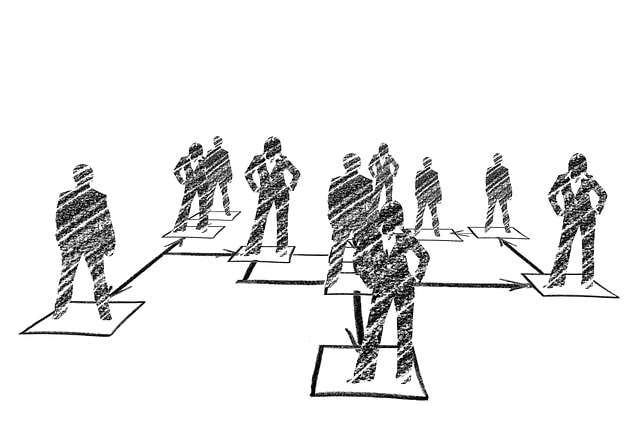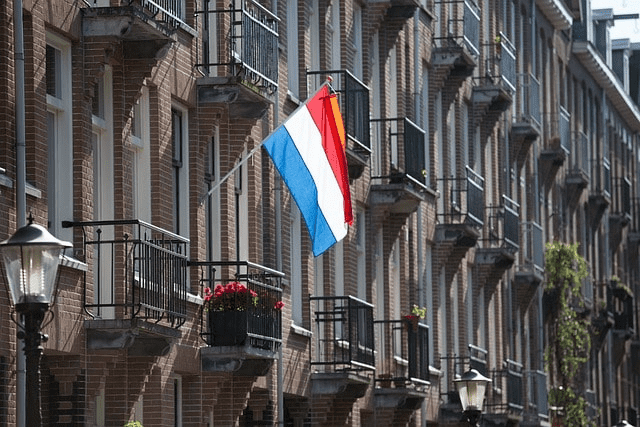The Netherlands has a unique approach to work. It prioritises a healthy work-life balance, creating a work culture that fosters both employee satisfaction and company success. This kind of approach leads to higher morale and overall productivity.
The Netherlands is different from many other nations in that it has a more laid-back work culture, a thriving work environment, shorter working hours, and a unique structural hierarchy. This is why understanding their work culture is crucial for anyone considering a job or starting a business in the Netherlands.
In this article, we’ll explore specific aspects, like direct and open communication. Also, we’ll explain how these cultural norms shape the dynamics within Dutch workplaces, improve collaboration, and create a more egalitarian environment.
As a foreigner, it can be hard to handle this new professional landscape. In this article, you’ll find practical tips to help you get accustomed quickly.
What’s the Netherlands Working Culture Like?
Can you imagine a workplace where people are excited to come to work, motivated, committed, collaborate seamlessly, and constantly push boundaries? That’s Dutch work culture explained, in short.
A collaborative approach that values respect for one another and spurs people to work together to achieve goals is something you need to fully embrace. This approach boosts employee engagement and teamwork. Think about it – happy employees go the extra mile, leading to better service and a competitive edge.
Formal Business Culture

The Netherlands nurtures a work culture built on a strong foundation of core values.
The Dutch prefer dedication and commitment to high-quality work standards. They value getting things done right and efficiently. Focusing on streamlining processes, prioritising tasks, and meeting deadlines is something they highly appreciate.
Don’t sugarcoat it. The Dutch employees believe in clear and concise communication, even if it comes across as harsh at times. Both positive and negative feedback is welcome. Don’t mix directness with rudeness. Respect remains the cornerstone of communication.
In Dutch society, punctuality is crucial; expect meetings and appointments to start on time. Almost all meetings are scheduled in advance and in writing, so there is no excuse for not showing up without a valid reason. Greetings tend to be formal, with a firm handshake and direct eye contact.
Despite a flat hierarchy, the Dutch value strong collaboration between all levels as a foundation for achieving common goals. Share ideas openly and show your practical and problem-solving approach. You are all equal in a team.
Polder Model
The Netherlands working culture is distinguished by a unique concept – the Polder model. This decision-making method emphasises teamwork and compromises to reach shared goals. It’s used across various sectors, from politics to business. Everyone contributes and differences are bridged to achieve success.
Here’s how the Polder model affects the Dutch work environment:
- Consensus-driven decisions – This model encourages all stakeholders (employees, unions, and employers) to participate in discussions and find common ground.
- Finding common ground – It is all-natural to have disagreements and different perspectives, but the focus is on finding solutions that address everyone’s concerns.
- Open communication – This model thrives on open and honest communication. Every team member should express their opinions and concerns freely. Dutch people practice transparency, which strengthens working relationships and reduces conflicts.
Work-Life Balance in the Netherlands
The Dutch work ethic prioritises a healthy work-life balance to prevent burnout and maintain the overall good health of all its residents. Standard working hours in the Netherlands typically range from 36 to 40 hours per week. Which translates to 7–8 working hours per day, 5 days a week.
Dutch employers strongly respect these boundaries and encourage leaving work on time. This focus on separating work from personal lives is crucial for employee well-being and overall productivity.
Many companies offer flexible work arrangements and hybrid work models, particularly for working parents. Only this way can they manage their schedules effectively and achieve a sustainable balance between their professional commitments and family duties.
Informal Business Hierarchy

The Dutch work environment is known for its flat, hierarchical structures. Dutch companies tend to be less rigid in terms of chains of command compared to many other countries. Meaning they place less focus on titles and more on collaboration and open communication across all levels to achieve company goals.
They do not encourage a working model where ideas flow solely from the top down; from brainstorming to project development, lower-level employee input is highly valued. This collaborative approach ensures diverse viewpoints before any big decisions are made.
The same focus and principles are extended to individual work as well. Many Dutch workplaces embrace independence and autonomy in employee roles. Employees are entrusted with a great deal of ownership over their work responsibilities. This can be incredibly rewarding, allowing them to grow professionally, develop different kinds of skill sets, and directly contribute to the success of the company.
Open Communication
The Dutch work culture nurtures open and direct communication. This even involves communication with superiors. Don’t be surprised if your colleague with a lower-level title offers direct feedback or addresses issues with a manager, and vice versa.
Remember, in the Netherlands, this kind of directness isn’t seen as rude (as long as you are polite); moreover, it’s seen as a sign of respect and trust. Being open and honest with your co-workers and supervisor translates to honouring their values and opinions.
When someone has a different perspective, they’ll voice it openly to try to find a compromise and the best solution. This can be a confusing and refreshing change for those coming from cultures with indirect communication and strict work structures.
Meetings and Time Management

The Dutch work ethic revolves around frequent meetings and appointments. Prepare yourself for hours of brainstorming in team huddles and project updates on Zoom, Google Meet, or in person. These activities serve a purpose, keep everyone informed, and create a sense of shared responsibility.
For Dutch employees, time is precious, and they value it greatly. Arriving on time for a scheduled meeting or announcing on time that you won’t be able to make it is a sign of respect for your colleagues.
A quick email or phone call to your Dutch colleague or supervisor to offer an explanation goes a long way.
How Diverse Is the Work Environment in the Netherlands?
The Netherlands prides itself on cultivating a work environment that embraces diversity and equality. Here’s a breakdown of their approach:
- Gender Equality – The Dutch value equality very much. The Netherlands boasts a significantly lower gender pay gap compared to many other countries. Moreover, the Dutch work culture offers flexible working hours, allowing mothers with very busy schedules to work while at the same time devoting time to their families as well.
- Embracing Diversity – Tolerance and acceptance are key values. Ethnicity, religion, and sexual orientation are not barriers in Dutch culture. Companies actively seek to create a diverse workforce.
- Accommodating Disabilities – Every Dutch workplace prioritises individuals with disabilities. Including implementing assistive technologies, modifying their workspaces to fit their needs, and offering remote work opportunities. They actively work on and improve measures to ensure everyone has the same opportunity to contribute to the company with their skills and talents.
- Multi-generational Approach – The Netherlands cultivates a culture where experienced and inexperienced individuals are welcomed equally. Naturally, senior employees are respected for their knowledge, but at the same time, younger generations bring fresh ideas and approaches. This creates a dynamic work environment where everyone has an opportunity to learn more.
- Hub for many multinational Companies – The Dutch commitment to diversity and equality actively attracts multinational companies by offering a welcoming work environment for everyone.
Cultural Challenges for Expatriates and Foreign Workers
While the Dutch work culture looks and sounds great, it can be challenging for foreigners. Here are a few areas where adjusting is necessary:
- Consensus Decision-Making – The consensus decision-making process is unfamiliar to many expats and foreigners. They might find this process time-consuming and frustrating.
- Direct Communication Style – Direct and blunt communication style might pose a big obstacle for many foreigners since it might be misinterpreted as rudeness. In the Netherlands, directness comes from a desire for efficiency and improvement.
- Individuality and Teamwork – The working culture in the Netherlands is relaxed, yet employers expect a certain level of independence and responsibility from their employees. This can be confusing for people who work in environments with a strong emphasis on individualism and self-promotion
Tips on How to Embrace Dutch Working Culture
Work cultures often vary greatly across the globe. The Netherlands offers a unique work culture you won’t find everywhere. If you are considering starting a job there or are already on your way, here are some key tips to help you embrace the Dutch way of working and ensure a smooth transition.
Get Accustomed to Honest Communication
This can pose the biggest challenge for many foreigners. Don’t be afraid to share your ideas, and concerns with colleagues and employers. Honesty and transparency are seen as a sign of engagement and a willingness to contribute.
Respect everyone’s ideas and be receptive to different perspectives and in no time you’ll find this approach liberating.
Be Okay With Receiving Feedback
While sometimes uncomfortable, constructive criticism is an integral part of the Dutch working culture and can be a powerful tool for growth. Both negative and positive feedback is helping you improve and be more productive. Instead of becoming defensive, ask clarifying questions and use them as an opportunity to learn how to find solutions and implement changes.
Value The Time Off
Dutch people have a deep appreciation for time off, both during the workday and vacations. Embrace leaving work on time, not working long hours, and recharging for the next day. Common practice is to pursue hobbies, spend time outdoors with friends and family, and do anything that relaxes you.
Avoid work-related calls or contacting colleagues outside of working hours if not necessary. Respect their personal time and create clear boundaries between work and personal lives. Plan your time off and give yourself the space you need to reset and return with fresh ideas and perspectives.
Participate in Team Events
While professionalism is expected in the Dutch workplace, don’t be stiff. Loosen up in conversations with colleagues but maintain a respectful tone. A good sense of humour and a few lighthearted jokes during lunch breaks or social gatherings are very appreciated. Don’t be afraid to participate, and keep cultural nuances in mind to avoid misunderstandings.
Most companies organise informal team events or after-work drinks to motivate their employees to bond with colleagues outside of the work setting. These informal interactions and social events contribute to building stronger relationships and trust among team members.
A more relaxed and friendly work environment equals a more enjoyable work experience and increased work morale.
Be Okay with Informality
Informality doesn’t mean a lack of professionalism in Dutch work culture. In fact, it’s about finding a comfortable and friendly space to work and connect with your team. When co-workers feel comfortable interacting freely with each other, that directly translates to innovative ideas and a more creative working atmosphere.
More Casual Dress Code
Always dress professionally for your first day and important meetings. However, adjust your style based on the office culture and be mindful of cultural norms. For example, avoid overly revealing clothing or anything that could be considered disrespectful.
It is safe to say that it is always better to be slightly overdressed than underdressed.
Ready to Explore Exciting Job Opportunities in the Netherlands?
Cultivating a healthy work culture is not a luxury, but rather a necessity that drives success. Adopting the positive aspects of Dutch work culture provides many benefits to both employees and employers. Ultimately, a happy and healthy workforce is a productive one.
Visit Robin to explore job offers and take the first step towards a rewarding career in a dynamic and welcoming country such as the Netherlands.

 English
English  Lietuvių
Lietuvių  Latviešu
Latviešu  Polski
Polski  Português
Português  Română
Română  Slovenčina
Slovenčina  Magyar
Magyar  Русский
Русский  Espanol
Espanol  България
България  Čeština
Čeština  Italy
Italy  Croatia
Croatia  Greek
Greek 

